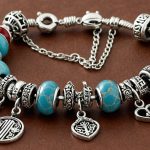The Impact of Recycled Materials in Fashion
The interplay of recycled materials and sustainable fashion is revolutionizing the fashion industry, ushering in practices that significantly mitigate the environmental impact. By utilizing recycled fabrics, the industry actively reduces waste and lowers the carbon footprint, addressing two major environmental concerns. Such initiatives also catalyse a shift towards more sustainable practices, marking a pivotal change in how clothing is produced and consumed.
Beyond waste reduction, recycling introduces a cyclical life for materials, effectively decreasing the need for virgin materials and minimizing resource depletion. This process not only preserves natural resources but curtails pollution related to raw material extraction and processing. In fact, the deployment of recycled materials can reduce water usage, energy consumption, and greenhouse gas emissions, showcasing a direct positive environmental outcome.
Also to read : Ultimate Guide to Autumn Layering: How to Select the Perfect Tights for Chic UK Style
Fashion brands adopting sustainable methods are leading when it comes to innovation, setting a precedent for responsible production and enhancing their market reputation. These practices include transforming waste into high-quality textiles, promoting eco-friendly production, and influencing fashion design’s creative dimensions. Ultimately, as the focus on long-term sustainable fashion becomes more pronounced, the ongoing incorporation of recycled materials highlights a commitment to ecological integrity and social responsibility.
Profiles of Innovative British Designers
Embarking on the voyage of sustainable fashion, several British designers are weaving unique stories through innovative practices. Each designer brings a fresh perspective, championing both artistry and environmental responsibility.
Topic to read : Exploring the Transformation of Women’s Tailoring in the UK: Essential Insights and Milestones
Designer 1: Stella McCartney
Stella McCartney has been at the forefront of eco-conscious fashion, intertwining her journey with robust sustainable principles. Her distinct evening gowns, crafted from reclaimed fabrics, stand as testaments to her dedication. By seamlessly incorporating luxurious recycled materials, Stella merges elegance with environmental impact, reimagining contemporary design perspectives.
Designer 2: Phoebe English
Phoebe English draws inspiration from the cyclical nature of fashion. Her notable creations, characterised by artful drapery, highlight recycled materials’ versatility. English’s gowns are a symphony of intricate craft and eco-friendly practices. Recognised by numerous awards, her devotion to sustainability is a touchstone for aspiring designers.
Designer 3: Christopher Raeburn
Christopher Raeburn’s commitment is palpable through his innovative techniques. His mastery in transforming textiles, often sourced from unconventional origins, results in striking gowns with a conscious ethos. Collaborating with broader initiatives, Raeburn continually challenges norms, elevating recycled materials into the realm of high fashion. His work underscores the collaborative potential within sustainable practices, inspiring collective change.
Techniques and Processes for Recycling Fabrics
Recycling fabrics, a cornerstone of sustainable techniques, offers a revolutionary approach to reducing the environmental impact of fashion. Textile recycling processes vary widely, from mechanical shredding to advanced chemical methods. Mechanical recycling transforms old garments into fibres without altering their chemical structure, making it ideal for cotton and polyester blends. However, these processes may lead to fibre quality deterioration.
Innovative techniques have emerged to address such issues, including fabric innovation through chemical recycling. This method breaks down textiles to their molecular level, refining them into virgin-quality fibres, thereby extending the lifespan of recycled materials. A prime example is the regeneration of nylon from discarded fishing nets—showcasing a virtuous cycle of material reusability.
Case studies illuminate the efficacy of these processes. Patagonia’s partnership with a textile recycling company sees worn-out garments reborn as new, high-performance clothing. Additionally, the H&M garment recycling initiative highlights large-scale possibilities, turning millions of tonnes of unwanted fabrics into new fashion lines.
These pioneering methods not only minimise waste but bolster an evolving industry ethos—enabling fashion to tread lightly on the planet. As innovation continually refines these processes, sustainable practices herald a new era of ecological responsibility within the fashion realm.
Showcasing Exquisite Evening Gowns
Explore the realm of evening gowns where elegance meets environmental responsibility. These remarkable creations, showcased in numerous fashion shows, highlight the innovative use of recycled materials and promise to delight with their artistry.
Gallery of Stunning Evening Gowns
Within this curated selection, you’ll discover gowns crafted from recycled materials that don’t compromise on style. Each piece not only embodies visual inspiration but also features unique design elements, showcasing the versatility of sustainable fabric innovation. Luxurious textures, vibrant colors, and intricate details accentuate the craftsmanship of each gown, highlighting how sustainability and high fashion seamlessly interlace.
Behind the Scenes of Fashion Shows
Gain insights into the exciting world of fashion events that prioritize sustainable practices. These shows not only captivate audiences with their elegance but also engage them in conversations about eco-friendly fashion. Designers often share their thoughts, stating how these collections represent a shift towards sustainable techniques in the industry. Audience reactions reflect growing interest and appreciation for such efforts, emphasizing the positive environmental impact of making environmentally conscious choices.
Through both the public displays and behind-the-scenes initiatives, these fashion innovators continue to transform perceptions, proving that exquisite style and environmental integrity can coexist beautifully.
Environmental Considerations and Impact
Exploring the realm of eco-friendly fashion, it’s essential to address the significant environmental impact achieved by sustainable practices. Sustainable gowns crafted from recycled materials actively contribute to environmental benefits, mainly by reducing waste and cutting down on resource consumption.
Sustainability metrics offer a clear view of these benefits. One pivotal metric is the decrease in water usage, as recycled fabrics generally require less water than their virgin counterparts. Additionally, the manufacturing process for sustainable gowns often involves lower energy consumption, substantially reducing the carbon footprint of fashion production.
Consumer choices play a crucial role in shaping the industry’s future. Supporting sustainable gowns contributes to an eco-conscious market, encouraging brands to adopt and expand their eco-friendly options. Over time, this shift not only impacts the industry but also fosters a broader societal change towards sustainable living.
The emphasis on sustainable fashion underscores the power of informed decisions. By choosing environmentally friendly garments, consumers actively promote reduced waste and energy use, ultimately ensuring that this philosophy remains central in fashion discussions.
Purchasing Options and Supporting Designers
In the immersive world of ethical shopping, making thoughtful fashion purchases is increasingly accessible. Numerous sustainable brands offer collections that prioritize environmental integrity, allowing consumers to support eco-friendly practices effortlessly.
Finding collections from featured designers is straightforward, with many showcasing their creations both online and in select boutiques. To explore the dynamic work of these designers, consider visiting specialized sustainable fashion platforms where their innovative designs are prominently displayed. By choosing to support these brands, consumers play a crucial role in encouraging eco-conscious practices within the industry.
When seeking out eco-friendly options, look for certifications that guarantee sustainable techniques and ethical production standards. A mindful approach to fashion purchases involves researching brand values, ensuring alignment with sustainability goals. This not only assures quality and responsibility but propels the demand for environmentally considerate fashion.
For those committed to eco-conscious consumerism, adopting practical tips such as prioritizing quality over quantity and opting for timeless pieces can significantly impact environmental footprint. Supporting local designers and artisans further strengthens sustainable industries, fostering innovation in fashion production.
By making informed and conscious fashion choices, consumers collectively advocate for a shift towards a more sustainable and responsible industry, resonating with enduring ecological commitment.


